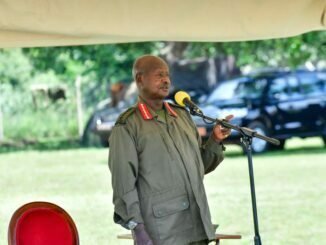
Journalists risk losing their clout by engaging in activism, Media experts have cautioned, in the wake of the renewed debate on the role of the media in social campaigns. They argue that journalists should be able to maintain public trust in the profession through honesty, objectivity and accuracy.
The debate comes amid protests led by renowned media personalities on the introduction of Over the Top (OTT) tax. Under the tax regime, Ugandans are expected to pay a daily charge of 200 Shillings to be able to access social media sites like Facebook, Twitter and WhatsApp, among others.
Raymond Mujuni, one of the reporters at the forefront of the campaign against ‘Social Media Tax’ says that he was driven onto the streets under the belief that journalists are first Ugandans and what affects Ugandans affects journalists.
He says the rule of objectivity is what would prohibit a journalist from activism, but journalists are very much political beings who should be at the forefront of exposing unjust laws.
“I have a narrow window to permit for journalists to practice activism and that is if they don’t influence or report on the areas they are actively involved in. That allows them to both enjoy their civic rights and report as well,” he says.
But Makerere University Journalism Lecturer, Dr Adolf Mbaine says activism raises serious ethical questions for journalism. He says that journalists have platforms that other people do not have, to voice out their concerns about certain injustices.
Mbaine explains that because journalism condemns human rights violations and calls for sanity through condemning corruption and other government excesses, it takes the path of activism, which however should be practised with an ethical touch.
He cautions that a journalist cannot be seen to side with a political party and campaign for a presidential candidate until they have resigned from the profession to become mainstream politicians.
According to Mbaine, although it could be technically alright for a journalist to resign, engage in activism and return, it is still possible for a journalist to be damaged during that period.
Renowned media specialist George Lugalambi says that journalists are entitled to demonstrate if the issue of contention touches their rights and freedom. He, however, says journalists should excuse themselves from covering stories for which they have strong biases.
He adds that although he supports the passion for the cause against social media tax, journalists that participated in the campaign should not let this come through their work by for instance influencing news items or publishing what they were involved in.
According to Lugalambi, Journalists can be activists by asking tough questions in relation to the taxes, but not directly taking to the streets, otherwise, they tread a delicate and thorny path that puts them in conflict with ethical guidelines of the profession.
Media entrepreneur Kin Karisa acknowledges a slim line between journalism and activism adding that it is always important for journalists to draw clear boundaries between the two. He adds that journalists risk being misunderstood if they do not separate the two and that the media house cannot be seen as neutral and impartial.
Kariisa says that whatever the situation, journalists need to approach it with neutrality and not emotionally.
– URN



